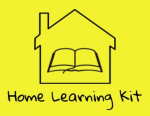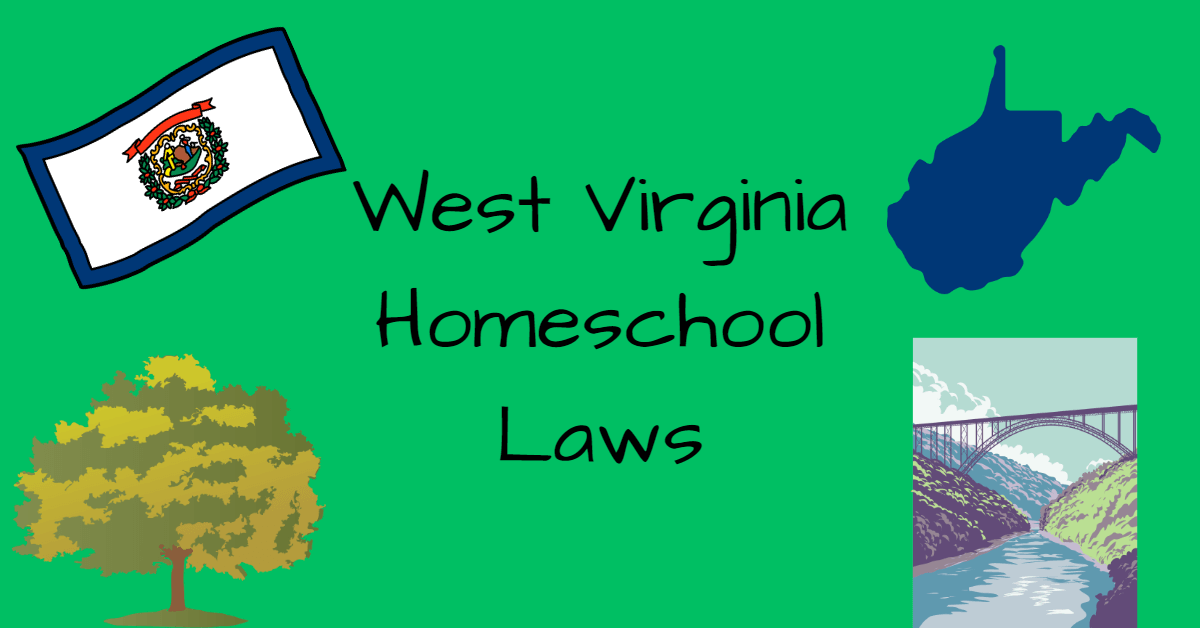Updated for the 2024 – 2025 school year.
Below is a summary of West Virginia Homeschool Laws to help you ensure your homeschool is compliant.
Looking For Another State? (Click to Drop Down)
Alabama – Alaska – Arizona – Arkansas – California – Colorado – Connecticut – Delaware – Florida – Georgia – Hawaii – Idaho – Illinois – Indiana – Iowa – Kansas – Kentucky – Louisiana – Maine – Maryland – Massachusetts – Michigan – Minnesota – Mississippi – Missouri – Montana – Nebraska – Nevada – New Hampshire – New Jersey – New Mexico – New York – North Carolina – North Dakota – Ohio – Oklahoma – Oregon – Pennsylvania – Rhode Island – South Carolina – South Dakota – Tennessee – Texas – Utah – Vermont – Virginia – Washington – West Virginia – Wisconsin – Wyoming
Note: The information below is not to be considered legal advice. I’m a homeschool mom with an interest in helping you, not a lawyer. I strongly recommend that you contact your state education department if you have questions specific to your circumstances.
Homeschool
West Virginia has requirements including your qualifications as a parent-teacher, initial notification, annual assessments, and required subjects.
Can I Teach?
You must possess either a high school diploma or equivalent or a post-secondary degree/certificate in order to teach your child.
How you get a college degree without a high school diploma or GED, I honestly don’t know.
Do I Have to Notify the State?
Yes. You must notify the county superintendent or county board when you start your homeschool program. The notice must include:
- Child’s name
- Child’s address
- Child’s age
- A statement that you will teach West Virginia’s required subjects (more below)
- A statement that you will have your child assessed annually and provide the necessary documentation to your county superintendent (more below)
The West Virginia Department of Education provides a Homeschool Notice of Intent that you can use and meets these requirements.
Annual Assessment
West Virginia requires annual assessments that must be kept in your records for a minimum of 3 years.
In Grades 3, 5, 8, and 11 you must submit the results of the assessment to the county superintendent by June 30th of the year of the assessment.
You have four options:
- Your child takes a nationally normed standardized test, which includes the required subjects described below
- Your child participates in your local public school’s testing program
- A certified teacher reviews samples of your child’s work and provides a narrative noting your child’s progress in the required subjects described below
- Your child completes an alternate assessment of proficiency that is mutually agreed upon between you and the county superintendent
Required Subjects
You must teach West Virginia’s core subjects including:
- Reading
- Language Arts
- Mathematics
- Science
- Social Studies
How Many Days a Year do I Have to Teach?
There is no requirement for the number of school days or hours. For your reference, West Virginia’s public school year is 180 days.
I strongly recommend you keep attendance in case it’s needed by the Department of Education or for something like college applications.
Compulsory Attendance Age
The compulsory attendance age is the age range in which your child must be attending school of some type.
In West Virginia, your child must attend school if they turn 6 before July 1st until they turn 17. However, if you live in Cabell, Marshall, Monroe, or Wyoming county, this age is 18.
Public School Sports
The West Virginia Secondary Schools Athletic Commission allows homeschool students to participate in its activities.
Contact your local school for more information.
Wrapping Up
Hopefully this summary of West Virginia Homeschool Laws gets you started on your homeschool journey with your family!
If you’re just getting started, you’re probably feeling a bit overwhelmed.
The Home Learning Kit can help!
It’s a package of handy learning tools to make your homeschool more fun and engaging, curated by yours truly. Check it out!


